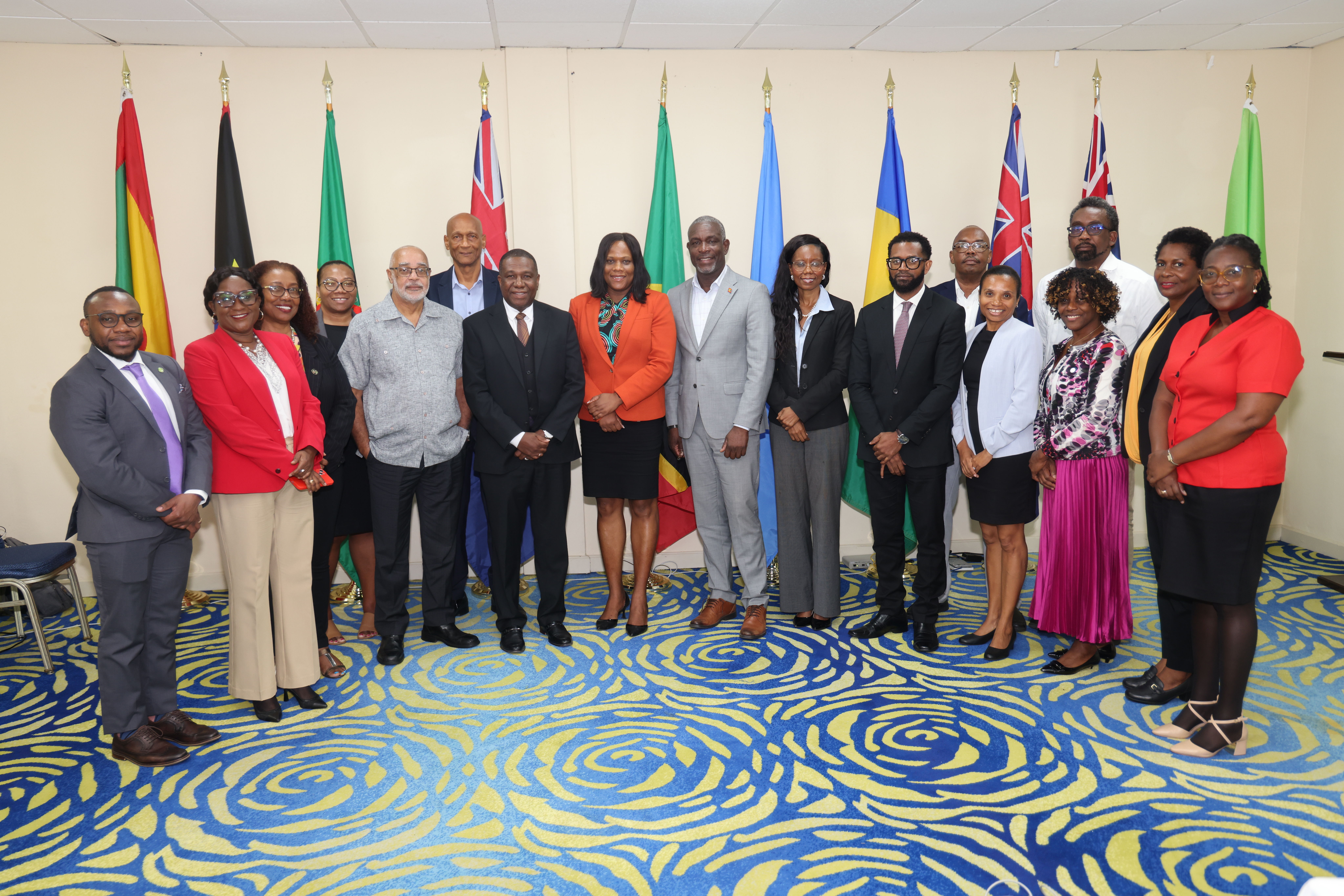OECS Council of Ministers: Trade, Advances the Framework for Regional Trade Policy Making
OECS Press Release
May 23, 2025 – The Sixth Ordinary Meeting of the OECS Council of Minsters: Trade, was held on May 14 and 15, 2025 at the Radisson Grenada Beach Resort, Grand Anse, Grenada. The Meeting of Trade Ministers was chaired by the Honourable Joseph Andall, Grenada’s Minister for Foreign Affairs, Trade and Export Development. On the agenda were important matters related to the Regional Trade Policy Coordinating Framework, the OECS Customs Union with Free Circulation of Goods, the OECS Free Trade in Services Regime, and the coordination of OECS’ positions for the Caribbean Community (CARICOM), the World Trade Organization (WTO), and the region’s engagement with key external partners.
At the Opening Ceremony, the Director General of the OECS Commission, Dr. Didacus Jules emphasised the global context in which the meeting of the Council of Ministers was taking place and the response needed.
“We gather today... at a very critical juncture in global economic history... at an inflexion point of tectonic shifts in the world's geopolitical and trade architecture... [in]... a Poly crisis ... of economic, environmental, technological and geopolitical disruptions, each amplifying the other leaving small island states like ours with vanishing margins for manoeuvre.”
“[T]his moment demands more than analysis; it demands strategic clarity. It demands political courage and above all, it demands action, not in silos, not in speeches, but in coordinated regional response and resolve.”
Hon. Joseph Andall, in his opening remarks, emphasised the imperative and mandates of the OECS Treaty.
“The premise for our gathering at this Council of Ministers for Trade is found in the Revised Treaty of Basseterre establishing the [OECS] Economic Union... Member States have agreed to implement the decisions of the OECS, and to endeavour to coordinate, harmonise, and undertake joint actions and pursue joint policies in several areas across the economic, environmental, and social dimensions.”
“…We need to urgently review and take stock of our work in progress towards the realisation of the purposes and functions of the OECS in the area of trade policy, and particularly, the operationalisation of the Economic Union as a single economic and financial space.”
The Council of Ministers deliberated on and made decisions on issues to consolidate the OECS’ trade and development interests, concerns and positions at the OECS, CARICOM and WTO in light of the rapidly changing global environment.
Decisions were made by the Council to strengthen the framework for formulating and implementing trade within the OECS. Terms of Reference and Rules of Procedure for the constitution and functioning of an OECS Trade Policy Committee were adopted. The Committee brings together officials, private sector and civil society representatives and various institutions, organisations, and technical experts to deliberate and provide reports, analyses and advice to the Council of Ministers on trade policy issues. The Council welcomed technical support to be provided to the Member States and the OECS Commission to develop national and regional trade policy frameworks and documents, as well as the revitalisation of the OECS Business Council (OBC). The OBC is to be the apex collective advocacy and representative body for the private sector. The Council agreed to grant the OECS Business Council observer status to its meetings.
Additionally, the council committed to advance the full operationalisation of an OECS Customs Union with Free Circulation of Goods. The meeting supported a recent decision of the OECS Economic Affairs Council (EAC) for a new comprehensive public education and awareness campaign on the Customs Union and a call for an updated roadmap with new implementation timelines to include the concept of a pilot implementation phase. The free trade in services regime within the OECS Economic Union was also propelled by a decision that the OECS Commission and Member States take all necessary action to bring national policy, legislative and regulatory regimes governing trade in services, in conformity with the mandates of the OECS Treaty. Therefore, restrictions and discriminatory provisions and practices are to be removed to allow free movement and establishment of service providers throughout the Economic Union space.
Turning to the wider external and economic trade relations, the Council of Ministers coordinated OECS positions for the upcoming 60th Meeting of the CARICOM Council for Trade and Economic Development (COTED). The Council also agreed to common positions for articulation in the work of the WTO.
The recent upheavals in the import tariff rates instigated by the America First Trade Policy were a major concern of the Council. In that regard, the meeting considered the potential implications of the higher rates of tariffs imposed by the United States (US), particularly the 10% tariff on all OECS exports to the United States. The Council agreed to certain actions for coordinated and strategic engagement with the US Administration to advocate for and represent OECS Trade and Development Interests, concerns and positions.
Finally, the Council noted key initiatives implemented by the OECS Commission to enhance the trade competitiveness of OECS enterprises and entrepreneurs and to support the implementation of maritime single window systems for ship clearance in Member States. The Council also noted a proposal from Martinique to implement a pilot digital platform in the greater Caribbean, to enhance the exchange of electronic freight transport information between the EU and its Outermost Regions and neighbouring independent countries.





